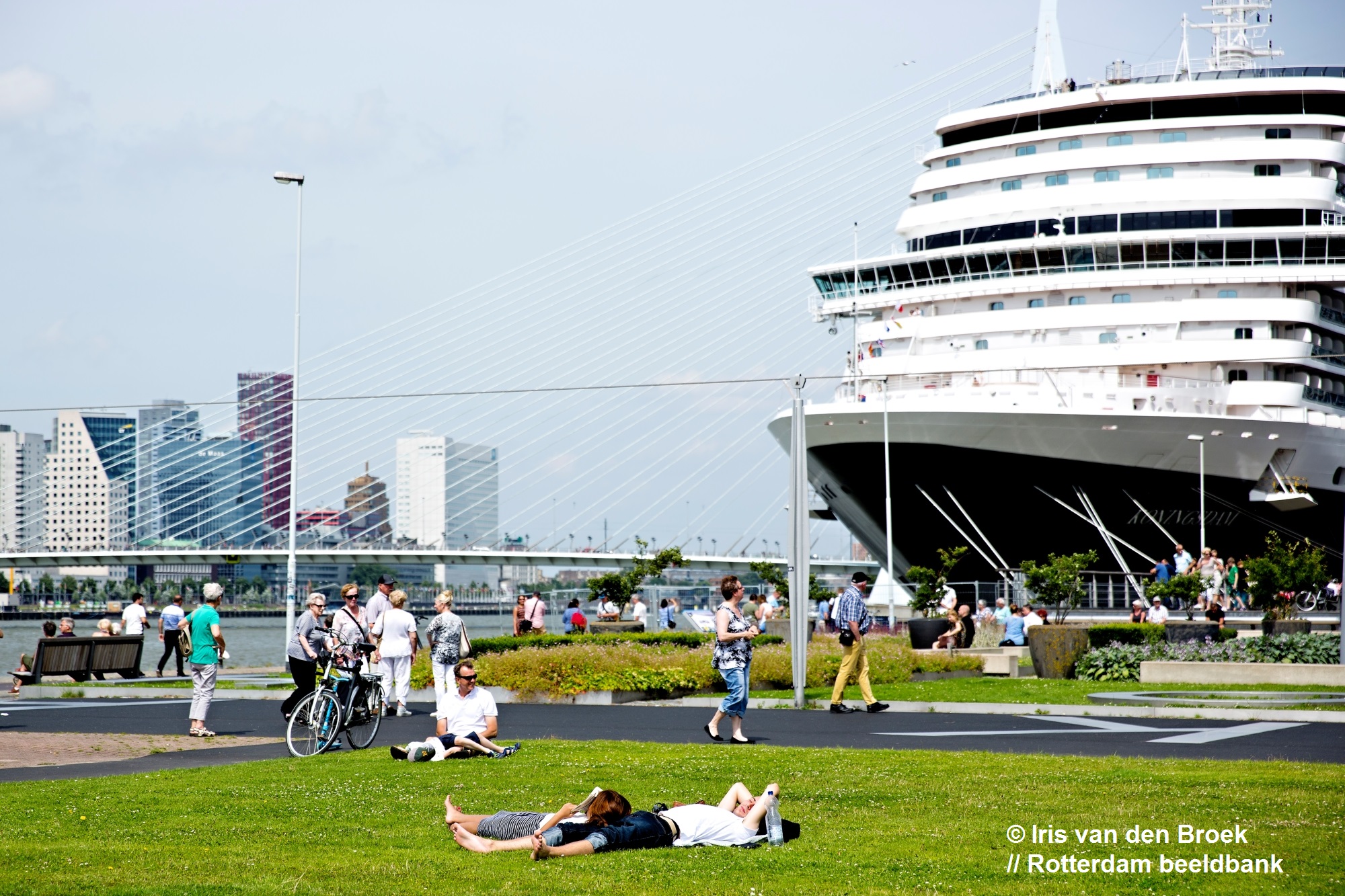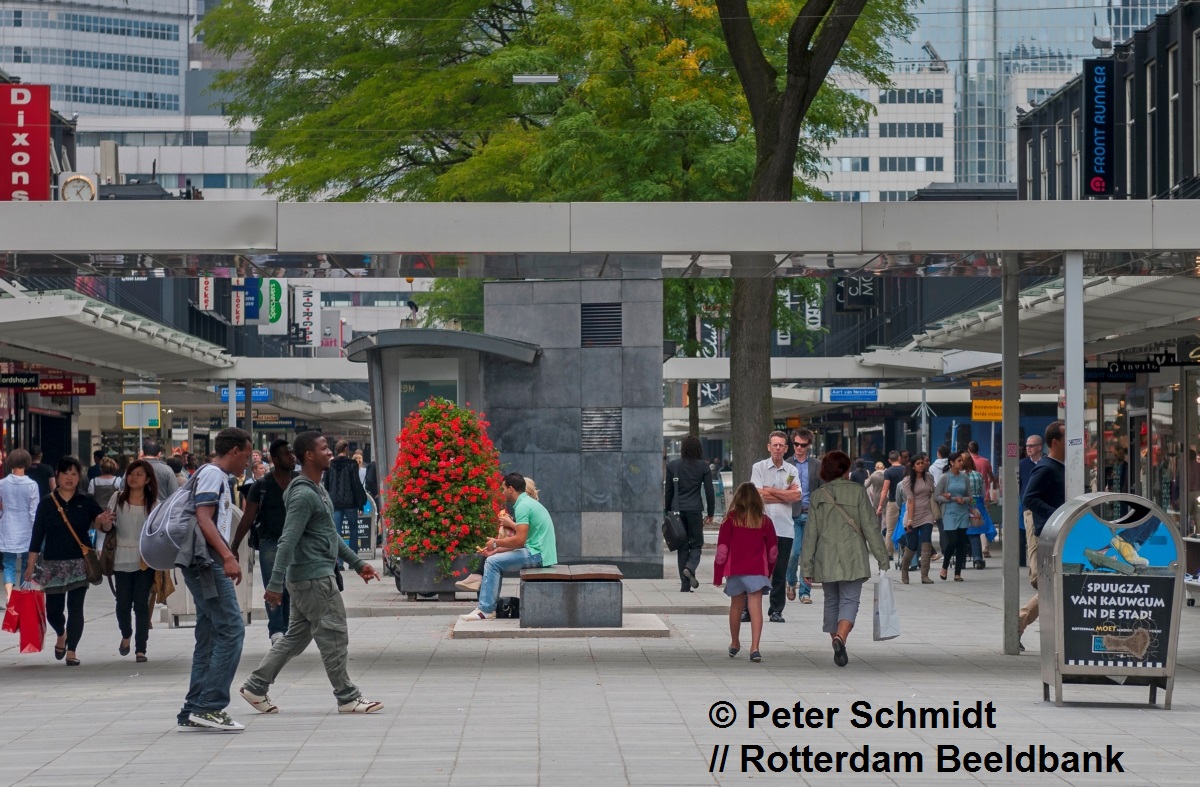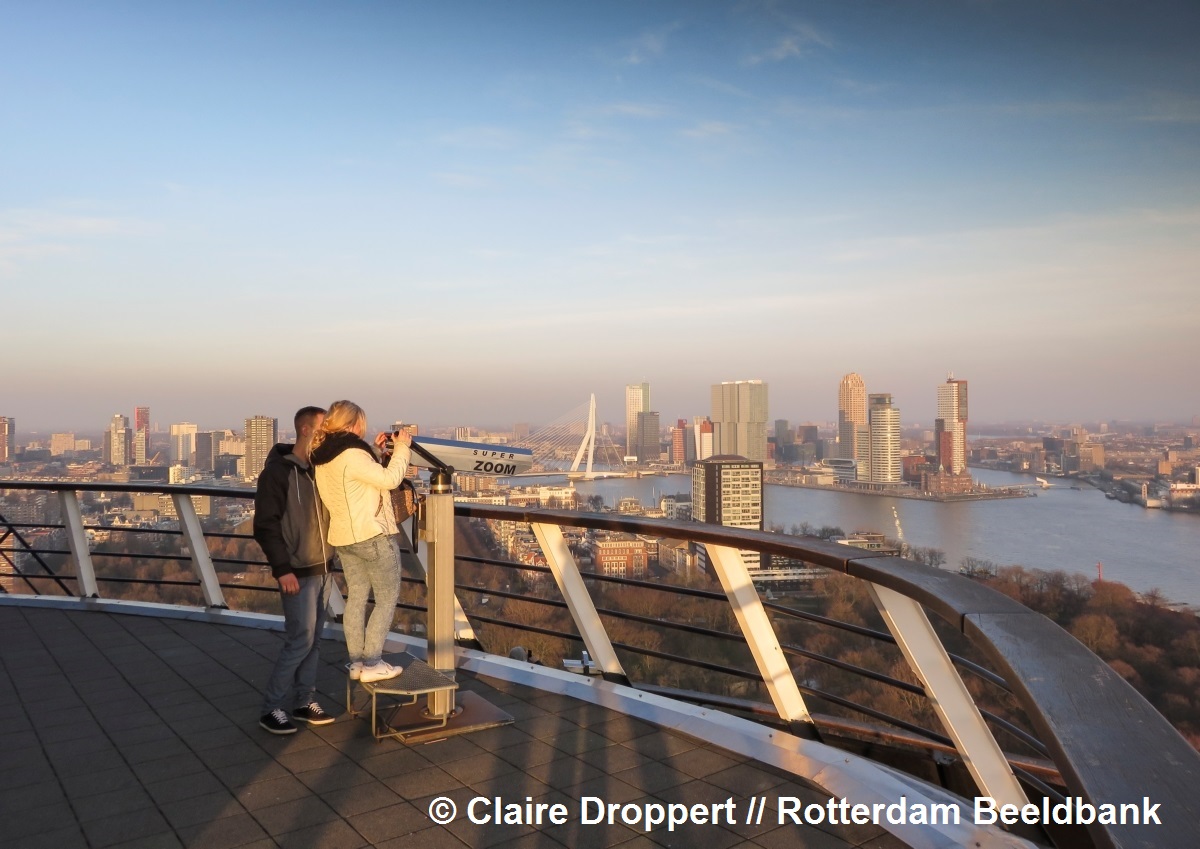This week, Rotterdam will host the 14th IMISCOE Annual Conference. This year’s theme is ‘Migration, Diversity and Cities’, focusing on the ‘urban reality’ of migration and diversity, so-called superdiverse cities and the increasing role of cities in policymaking in this area.
While there are tremendous variety between cities, such urban realities raise challenges and opportunities, in terms of international connections, integration, participation, emancipation and governance.

All of this will be central questions at the conference this week, but for now:
To assist conference participants in preparing for the conference, we’ve asked Peter Scholten, director of the IMISCOE network, and Carmen C. Draghici, representative of the IMISCOE PhD network, about their plans and must-sees, both at the conference and in Rotterdam.
Peter Scholten, associate director of IMISCOE and one of the conference coordinators.
Why do we need to speak about ‘Migration, Diversity and Cities’ here in Rotterdam?
There’s been too little research on migration and cities. I would say it’s an understudied field. More research should focus on migration and cities, migration and policy, and governance. While ‘global cities’, such as New York, London and Paris, and their migration links have been studied, each ‘global city’ remains unique. Research on cities like Rotterdam is necessary, and may be of more relevance to the field. A conference on ‘Migration, Diversity and Cities’ here in Rotterdam could boost such research. Rotterdam is super-diverse, but perhaps reluctantly so. That’s interesting!
What panels are you looking forward to?
I look forward to everything! As a coordinator I’m excited about the entire conference. I’m particularly interested in Steven Vertovec’s opening lecture, where he will assess the relevance of the conference theme in Rotterdam. I’m also looking forward to the semi-plenaries, which will have a more academic and less popular focus than in previous years. Some of the topics they will focus on are diverse cities and migration data. Finally, I look forward to all the session I take part in. One of them is a policy workshop I organise together with colleagues on ‘mainstreaming and the refugee crisis’.
As a migration scholar in Rotterdam, what would you recommend visitors to do?
Rotterdam is a great city to visit for migration scholars. Naturally, they should go to some of the more traditional migration sites, like the city markets. The neighbourhood Afrikaanderwijk is also interesting. This was the place where the first ethnic riot in the Netherlands took place. While it wasn’t a very big or bad riot, it became a turning point in Rotterdam. People were opposed to the large number of labour immigrants who moved to the area, particularly since there was a housing shortage for native Dutch in the area. In response to the riot, the city created new policies to govern ethnic diversity in the city. This has later influenced both Rotterdam’s city policies and Dutch national policies on migration and diversity. My main tip, however, is to go to the areas that the elite usually avoid, such as the big supermalls or shopping areas. Just by being in these areas, you can experience the diversity Rotterdam has to offer. If you go to the Lijnbaan, you can simply have a look around. People are young, they have different backgrounds. There’s no dominant trend, not only white people or people wearing headscarves, it’s truly multicultural.

Carmen C. Draghici, IMISCOE PhD Representative and one of the PhD Workshops organisers
1) Why should PhDs attend the IMISCOE PhD workshop?
As novel researchers we have the possibility to meet each other and discuss aspects that are related to our common interests in migration studies. Besides the academic training, the PhD Workshop provides a space for our community of PhD students inside the IMISCOE network. Getting out of our comfort zone in our local universities and meeting people from different countries and regions allows to broaden our personal network and to explore other perspectives on “finding our way” in the academic world. I encourage all PhD students to attend the PhD Assembly, so we can get to know each other personally and share ideas about the IMISCOE PhD Network.
2) What panels are you looking forward to?
As for the previous IMISCOE Annual Conferences, I’m looking forward to learn more about research related to my PhD thesis topic, which focuses on young children of migrants and preschool education. Since the conference in Geneva I’ve been amember of the Research Group ‘Transnational Migrant families, children and youth, and their intergenerational everyday experiences and informal learning perspectives’. In the Research Group, I’ve had the chance to develop collaborations even outside the conference. This year they organise the workshop ‘Critically exploring conceptualizations of “the family” and recruitment methodologies in research with migrant/transnational families’ (session 105, on Friday).
Another Research Group that inspires my research is the “Contested Childhoods in times of crisis”, which was established in 2013 addressing the final central question in IMISCOE’s research programme: “how do the children of immigrants integrate into society at large and how do they combine their membership of an immigrant group with that of the larger society?” I follow their posts on Facebook and their recent publications. This year I will participate at the two panels entitled ‘Transforming childhood and youth: increasing diversity in European cities’ (session 44 and 56, on Thursday).
I am also interested on Maurice Crul’s presentation about the European Research Council, and to its Grants calls (session 131, on Thursday).
There are many other interesting workshops and panels I would like to attend during the Annual Conference, but unfortunately I can’t be in many places in the same time.
3) As a visitor in Rotterdam, what do you plan to do?
Although it’s my first time in Rotterdam, I haven’t planned much regarding the touristic attractions. Therefore, I am looking forward to finally meet personally my colleagues from the PhD Network for an informal meeting regarding the organisation of the PhD Workshop and other aspects, in a strategic point of the city where you can see Rotterdam from above. Should other PhDs be curious about this place, they will have to become active members of the PhD Network for the next academic year.
Well, Carmen, and other visitors, here are a few more places you shouldn’t miss in Rotterdam when visiting the conference:
‘Kop van Zuid’ is a place you certainly cannot miss as a migration scholar. Hotel New York still stands were the steamboats to the United States left, facilitating the emigration of many Dutch to faraway shores. Furthermore, you find beautiful old warehouses, cool new architecture and some fine restaurants in this area.
The ‘Luchtsingel‘, is an elevated walkway near the Central Station. Cool place for a short walk.
‘Witte de Withstraat’ and the surrounding area is hip and happening. Great atmosphere and relatively cheap food at Hotel Bazar.
Go for a coffee and some local carrot-date cake at EspressoDates and explore the surrounding ‘West-Kruiskade’ and ‘Nieuwe Binnenweg’
& Do not forget to hang around at the Lijnbaan.
See you in Rotterdam!

is a PhD candidate at the Peace Research Institute Oslo, where she works on a project on Transnational living. Currently, Catherine a visiting scholar in Rotterdam
Ilona van Breugel
is a PhD candidate at the Erasmus University in Rotterdam. Her research focuses on local immigrant integration policy making.
